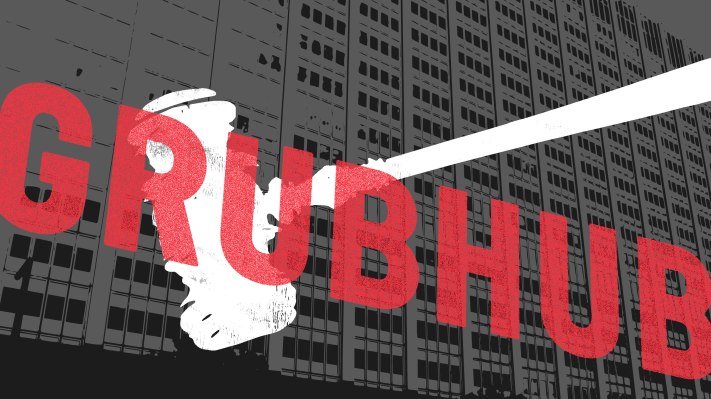GrubHub was back in court today for closing arguments around the trial involving Raef Lawson, a former delivery driver for GrubHub, who is seeking a small, estimated sum of $586.56.
This trial, Lawson vs. GrubHub, is looking to determine whether Lawson, an ex-GrubHub driver who was fired, was misclassified as an independent contractor while delivering food for GrubHub.
Those who work as 1099 contractors can set their own schedules, and decide when, where and how much they want to work. For employers, bringing on 1099 contractors means they can avoid paying taxes, overtime pay, benefits and workers’ compensation.
The burden, Judge Jacqueline Scott Corley said today, is on GrubHub to prove Lawson was an independent contractor versus employee.
“If you look at the facts, frankly, I don’t think there is very much question” that GrubHub has failed to prove the burden that Lawson was an independent contractor, Shannon Liss-Riordan, Lawson’s lawyer, said in closing arguments today. She also said she thinks it’s a pretty “straight-forward case.”
In her arguments, Liss-Riordan went back over the elements of the Borello test, which looks at circumstances like whether the work performed is part of the company’s regular business, the skill required, payment method and whether the work is done under supervision of a manager. The purpose of the test is to determine whether a worker is a 1099 contractor or a W-2 employee.
She pointed to the level of control GrubHub had over drivers — the main factor of the Borello test (more on that later). She noted the priority scheduling system and how the dispatchers had their favorite drivers they would give more orders to.
“Those are the types of things employers do,” Liss-Riordan said.
She went on to note how driver dispatchers had computer monitors that enabled them to see where people were and how Lawson was required to take a delivery even after he declined it.
But Judge Corley says there was not control over when drivers worked. She noted how if Lawson woke up in the morning and didn’t want to make deliveries, he didn’t have to. The right to control when someone work is “sort of the big distinction there,” Judge Corley said.
In the trial, it came up that Lawson lied on his resume about attending a three-year program, which he did not complete. It also came up that Lawson applied to work for GrubHub during the litigation, but under a different name. In the application process, they asked if Lawson had driven for GrubHub before and he said no.
“So I know he’s willing to not tell the truth, so I do have an issue with his credibility,” Judge Corley said today. Still, “if he’s an employee, it doesn’t matter if he was lying or not.”
Lawson also admitted that he started working with a lawyer before delivering for GrubHub, which suggests to some that he was preparing for a lawsuit from the get-go. But doing so doesn’t mean Lawson he was properly classified as an independent contractor.
Another key element is that GrubHub had the right to terminate Lawson at-will, which is an indicator of employment status.
“Under the right to control, which is the most important factor, California courts made it clear that at-will nature of right to terminate has inordinate importance,” Judge Corley said.
But GrubHub argues that the agreement was mutual and therefore weighs in favor of independent contractor status. GrubHub has also maintained that not only did the company not have control over Lawson and other drivers, but that delivery is not even part of its core business. Both of those elements are factors in the Borello test.
In closing arguments, GrubHub lawyer Michele Maryott noted that Lawson had “complete control to decide when he would be available, when to select the blocks — that was entirely up to him.”
She said Lawson called the shots, referring to how he didn’t use the app for two full months after signing up.
“There’s no question about what happened when Mr. Lawson didn’t use the app for two months,” Maryott said. “Absolutely nothing.”
She also said the claims that GrubHub monitored Lawson’s every move were not true. Another key element, Maryott said, is that Lawson had the right to work for GrubHub’s competitors, which is something Lawson admitted to doing. Lawson also made deliveries for Caviar and Postmates.
Regarding delivery as part of the business, Judge Corley questioned Maryott about how integral delivery is to GrubHub’s business. But Maryott said the company would be viable without it.
“Yes, they’re growing that part of the business, but it’s not the core business,” Maryott said.
Judge Corley is expected to rule soon(ish). The outcome could set a precedent for other cases involving the likes of Uber, Postmates, DoorDash and other gig economy companies.
